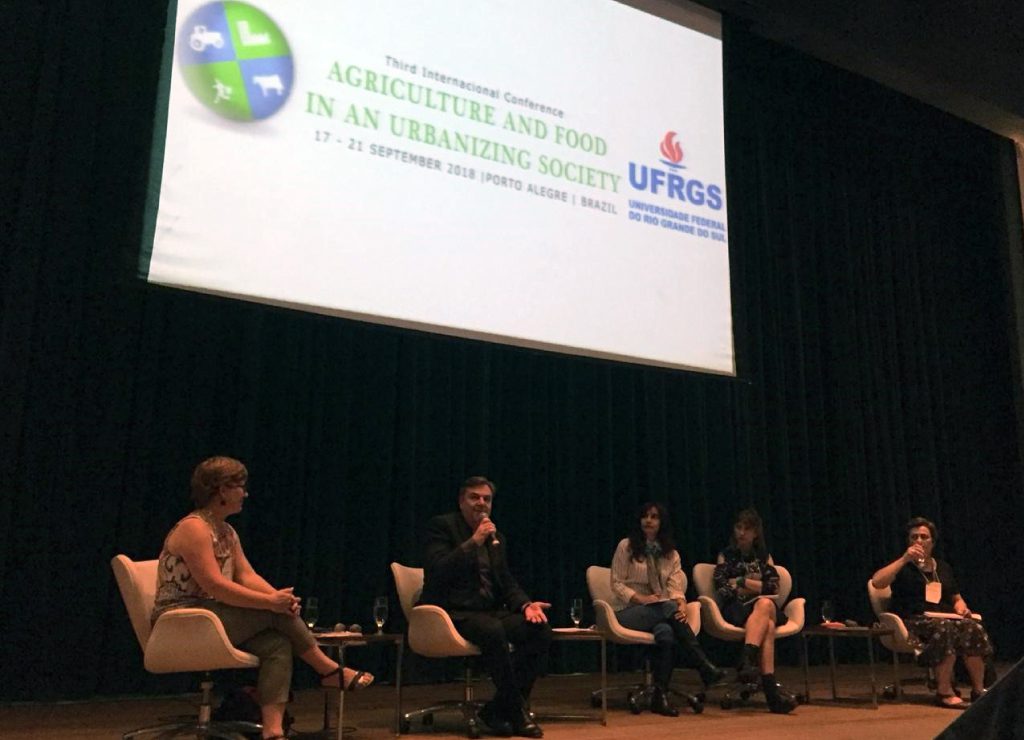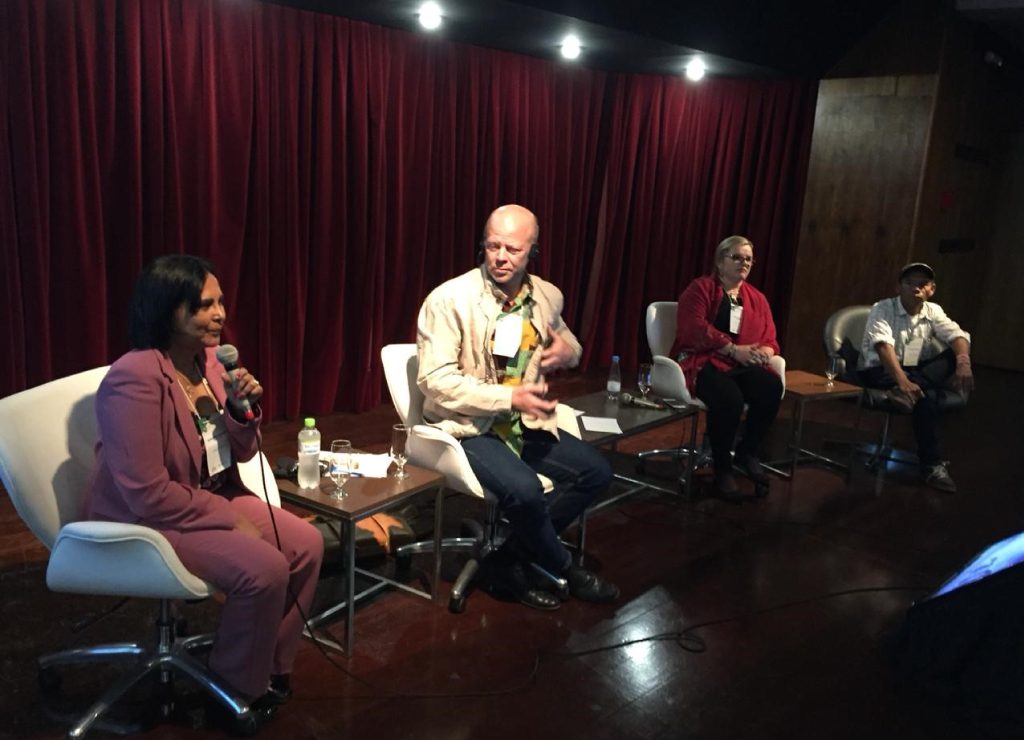
The WFP Centre of Excellence against Hunger participated in the Third International Conference on Agriculture and Food in an Urbanizing Society (AgUrb). The event happened on 17-21 September and gathered multiple actors involved in agri-food issues in order to reflect and debate about new food production, distribution and consumption strategies to be applied to increasingly urbanized societies.
Academic researchers, civil society organizations and policy makers discussed the need of bringing food and food-related matters to the core of the debates that involve the main issues challenging humanity, such as climate change and its impact on water and biodiversity, the pursuit of alternative energy sources, as well as demographic changes.
The main theme of the conference was “Healthy food, socio-biodiversity and sustainable agri-food systems: innovations from consumption to production”. The WFP Centre of Excellence sent three representatives to the event.
Daniel Balaban, Centre’s director, was the moderator of the panel “Food security and sovereignty: challenges to nurture the world”. In his opening remarks, he highlighted that hunger keeps growing in the world. According to the newest edition of the Status of Food Insecurity report, 821 million people are food insecure. “Do we lack the capacity of facing this problem? Is it lack of intelligence, or is it lack of political will? I believe it is the latter”.

Albaneide Peixinho, consultant of the WFP Centre of Excellence, was the moderator of the panel “Food systems and inequality gaps: how to end all forms of malnutrition?”. “In Brazil we still have some populations facing undernutrition, and others facing obesity. These nutrition gaps are a consequence of the lack of access to quality food by these groups”. She stressed that public policies are crucial to advance in fighting the double burden of malnutrition.
Joélcio Carvalho, programme officer of the WFP Centre, participated in the panel “BioEconomy Value chains – Latin American experiences”. He presented the Beyond Cotton project, a new initiative of the WFP Centre in partnership with the Brazilian Cooperation Agency that aims to support smallholder farmers in four African countries to find steady markets for cotton by-products, such as cotton oil, and associated food crops.
The conference was organized by the Federal University of Rio Grande do Sul, in southern Brazil. It brought together over 170 experts from 36 countries during five days, and activities included international panels, symposia, presentation of scientific papers in thematic working groups, experience reports from civil society, and field trips. The 1st edition of the International Conference on Agriculture in an Urbanizing Society was held in April 2012 at Wageningen University, in the Netherlands having as central theme “Multifunctional Agriculture and Urban-Rural Relations”. The 2nd Conference was held in September 2015 at Roma Tre University, in Rome, and its main theme was “Reconnecting Agriculture and Food Chains to Societal Needs”.




